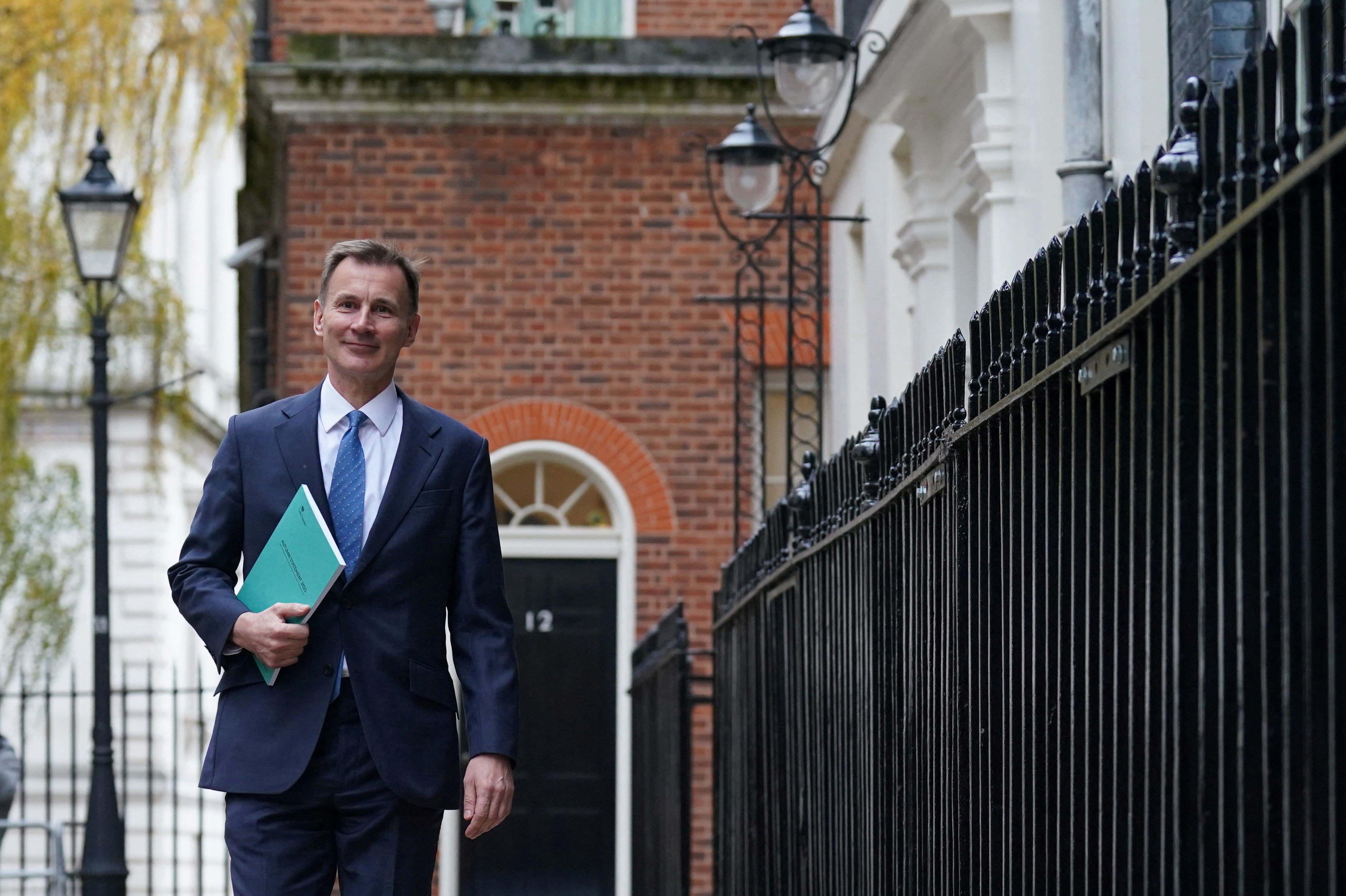
Chancellor of the Exchequer Jeremy Hunt leaves 11 Downing Street for the House of Commons to deliver his autumn statement on November 22, 2023 in London, Britain. Stephen Russo/Pool via Reuters Licensing rights
LONDON, Nov 22 (Reuters) – British Finance Minister Jeremy Hunt said on Wednesday he would cut the amount of National Insurance social security contributions paid by 27 million workers, saving workers hundreds of pounds a year.
Hunt said the government would reduce the National Insurance Contributions (NIC) rate for employees by two percentage points, a larger reduction than expected, and by one percentage point for the self-employed.
Employees earning more than about £12,570 ($15,663) a year currently pay 12% in NICs on their earnings up to about £50,270, while self-employed workers pay 9%.
Hunt said the cuts would take effect from January and would be a cut of around £450 a year for an employee earning £35,000.
“If we want people to get up early in the morning, if we want people to work at night, if we want an economy where people put in extra effort and work hard, we need to recognize that their hard work We all benefit.” Hunt told Parliament in his Autumn Statement budget update speech.
The UK’s independent budget watchdog, the Office for Budget Responsibility, estimated that the NIC rate cut would cost the government £10 billion in the 2024–25 financial year.
But the cuts to social security payments come after the government previously set an earnings cap for National Insurance until April 2028.
Generally freezing the cap, rather than allowing it to rise with inflation, attracts more workers to pay higher amounts of National Insurance as their earnings rise, thereby raising more money for the government.
Paul Johnson, director of the Institute for Fiscal Studies think tank, said Wednesday’s announcement could be the first cut in the key employee National Insurance rate in history, other than a reversal of a short-term increase last year.
But he added: “Taxes on income and earnings are still much higher than they were three years ago. This offsets only a small part of the huge tax increase that has resulted from closing income tax allowances and the border.”
Reporting by Andrew MacAskill, David Milliken and Kylie MacLellan; Editing by Kate Holton
Our Standards: The Thomson Reuters Trust Principles.
